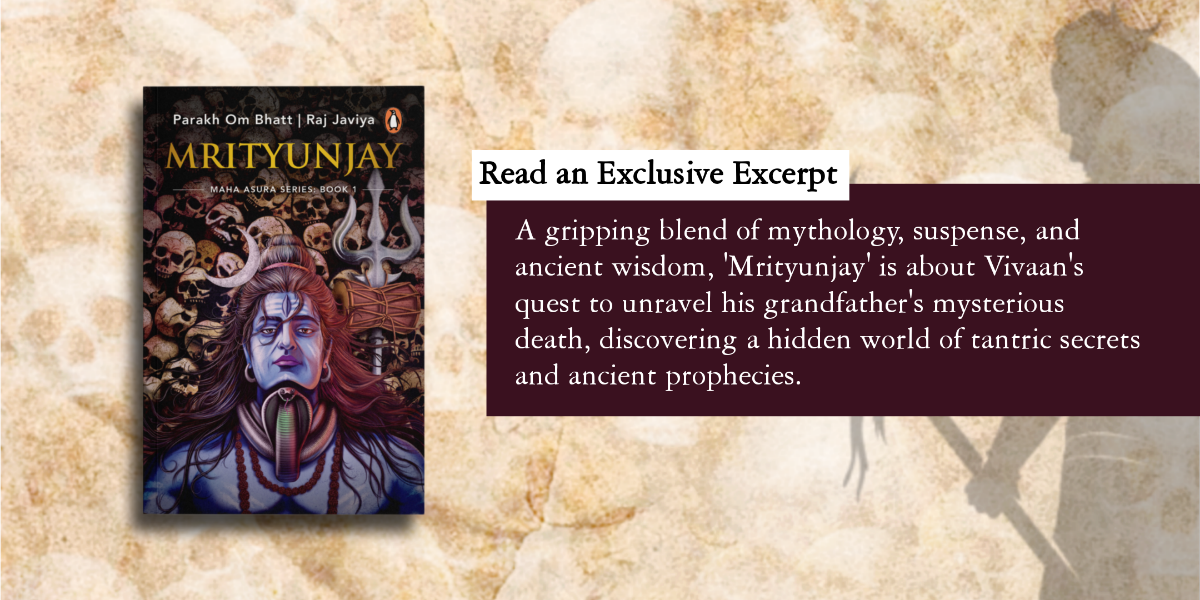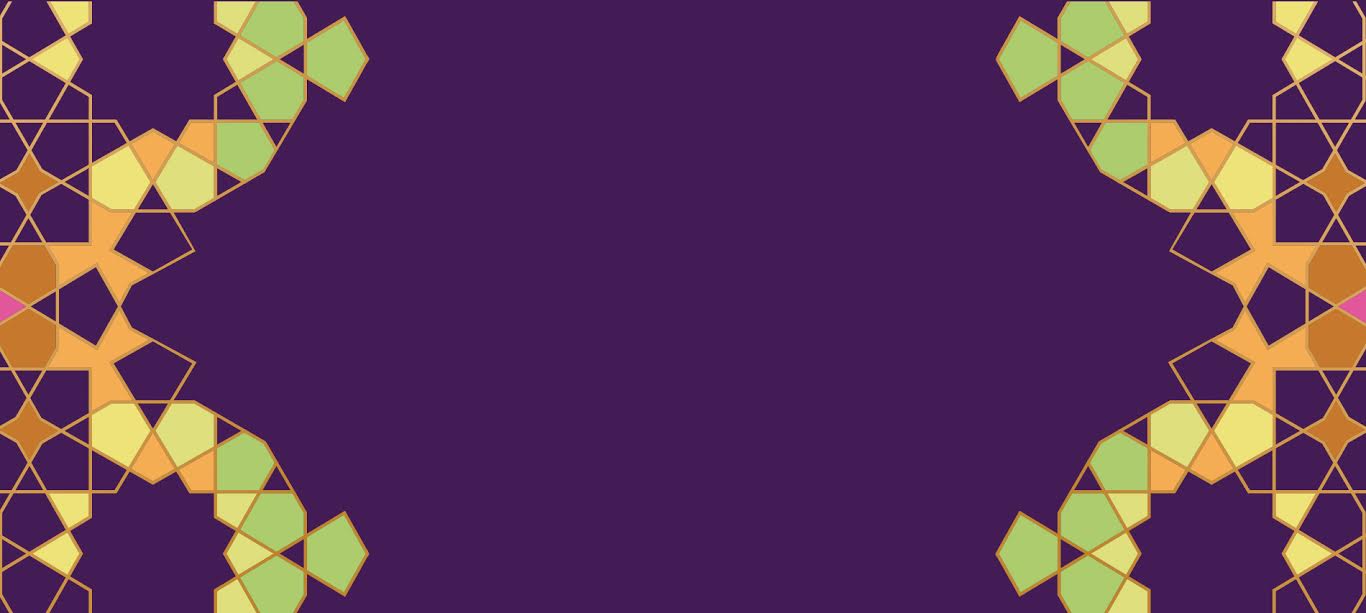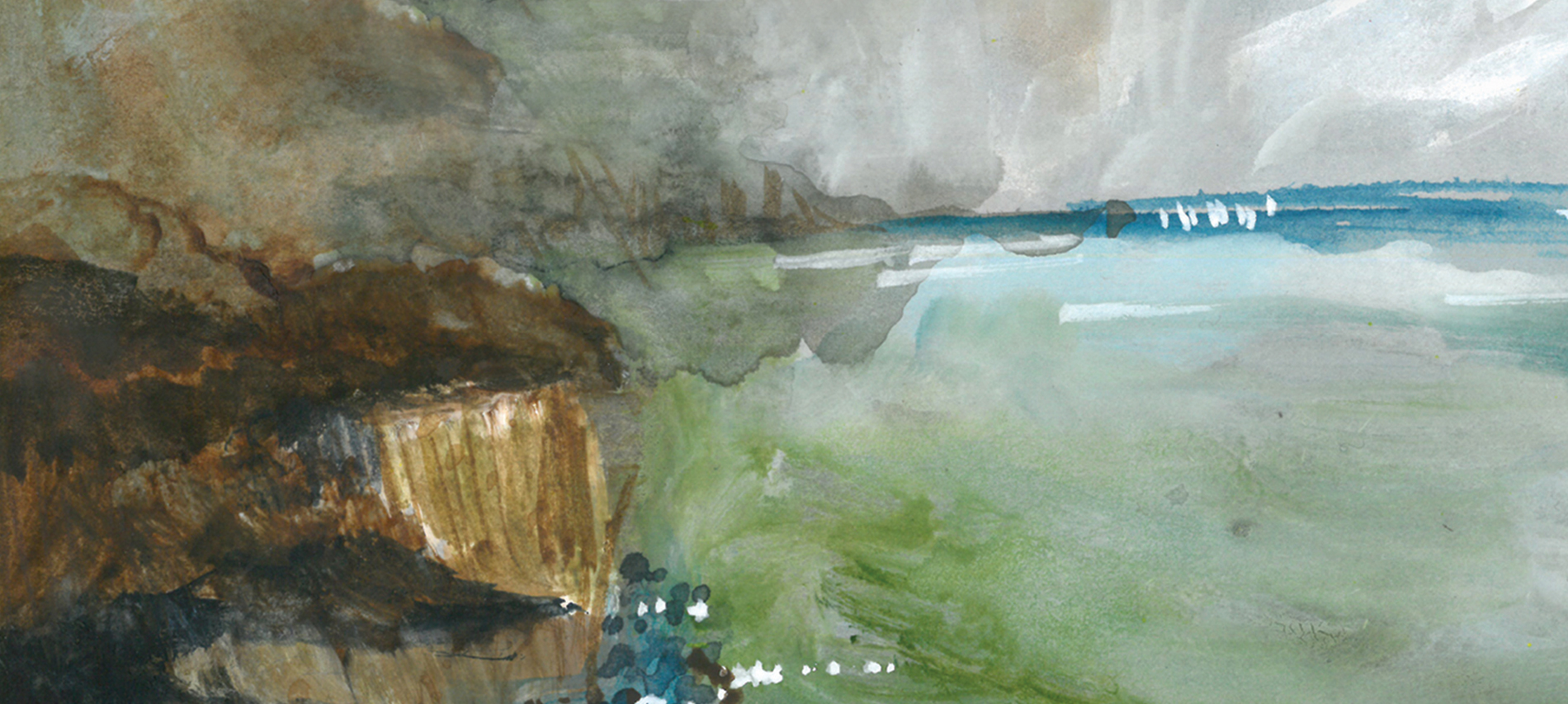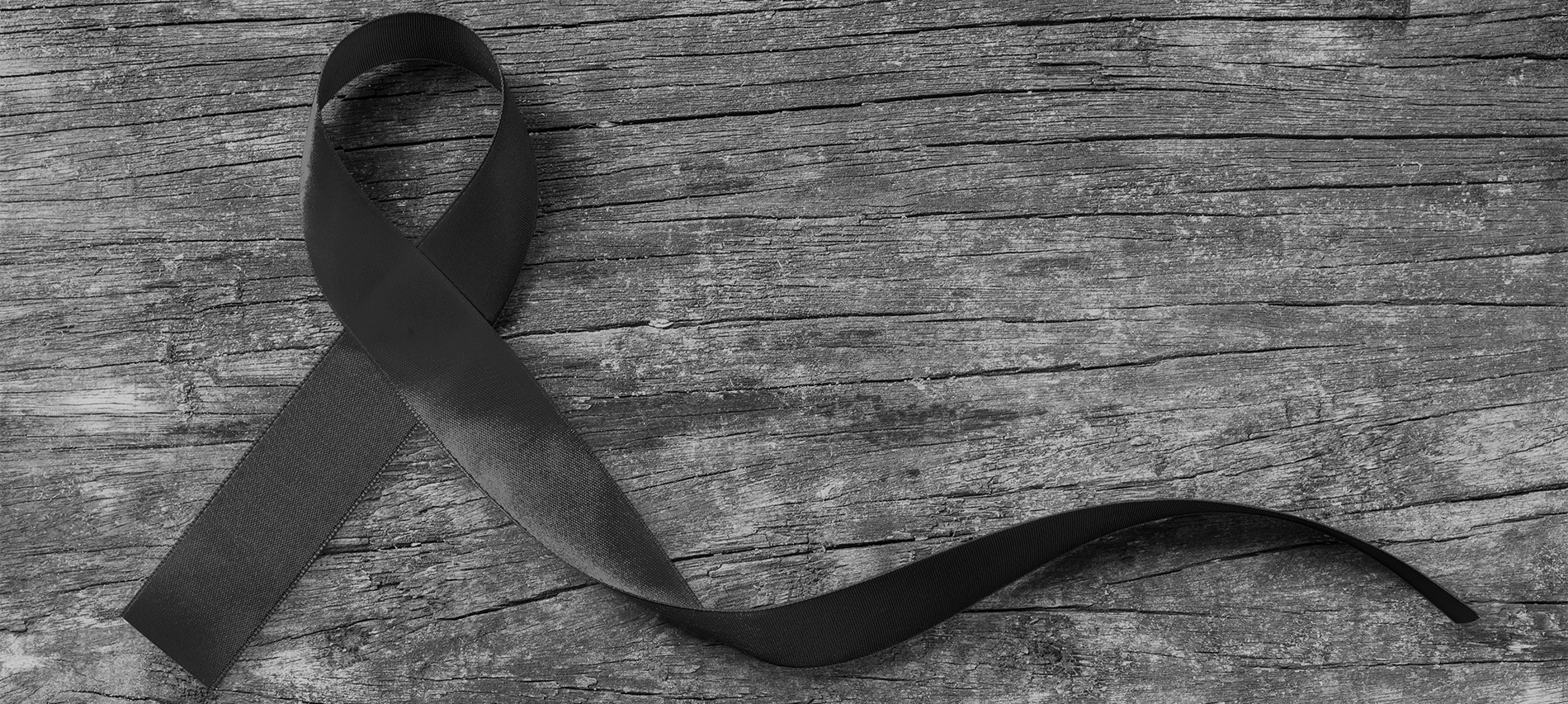The most awaited work of Tantric fiction of 2024 is here! A gripping blend of mythology, suspense, and ancient wisdom, Mrityunjay by Parakh Om Bhatt is about Vivaan’s quest to unravel his grandfather’s mysterious death, discovering a hidden world of tantric secrets and ancient prophecies. Could it be that the severed fifth head of Brahma held the deepest secrets of the Kaliyuga?
Read this exclusive excerpt to know more.
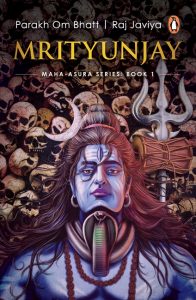
***
‘Baba, what is death? Why did Mom and Dad have such a short life?’
Vivaan had asked his grandfather these questions numerous times to, only to get a more mysterious answer each time. Today too, he was thinking about death. His thoughts came to a sudden halt as the car stopped. He had arrived at ‘Vasant iwas. The beautiful childhood he spent with his grandfather, the old man’s moist eyes when Vivaan was leaving for London, the spark in his eyes when he returned with a journalism degree and the shock when he announced that he wanted to settle down in Mumbai— the memories were vivid and fresh in Vivaan’s mind. He stepped out of the car and stared at the house. He had never ever thought he would come to an empty home in Rajkot.
The vintage-style house was one of its kind in the city. Vivaan opened the huge front door and the light smell of sandalwood hit him immediately. He remembered his grandfather using sandalwood while performing his daily prayers. The scent of the sandalwood reflected Sudhir’s subtle presence. The living room had white marble flooring, antique furniture and glass showpieces. There was a huge, embellished living room, prayer room and kitchen on thefirst floor of the house. Every morning after finishing his daily routine, Sudhir would sit in the prayer room on his mat in a fixed place and was not to be disturbed for an hour–and–a –half. There was another room through the prayer room, the key to which only Sudhir had. Vivaan still did not know what was in that room. He was curious, but after an incident that had happened in his childhood, he had not probed further.
Vivaan was shaking as he entered the living room. It was only last night when Sudhir had taken his last breaths in this very room. Vivaan imagined his grandfather stepping out of the prayer room, giving him a warm smile and offering him some prasaad. Vivaan reckoned that he had lost the pillar of his life.
His entire existence had crumbled in the last twelve hours. Though he had put on a brave face all this while, he was broken from within. He did not know how he would go on with his life without any family. He forced his eyes shut and crumpled to the floor. Fifteen minutes passed in absolute numbness. The sudden and loud ringing of his phone forced him to open his eyes and come back to reality.
‘Hello . . .’ Vivaan’s voice was almost like a whisper.
‘Good evening, son. Have you reached home?’ Alok Chaudhary said, his tone firm but loving.
‘Yes, uncle . . .’
‘Freshen up and come to the morgue. I want to talk to you.’ There was an urgency in Alok’s tone.
Alok Chaudhary, commissioner of the Rajkot Police, was a close friend of Sudhir Arya’s. Though they were years apart, they got along well. At fifty-seven, Alok was a year away from retirement. He had achieved the position of commissioner after several years of hard work and was well respected by his department for his excellent observation skills. Many believed that Alok should be in the Central Bureau of Investigation (CBI) and use his reasoning and intellect for national security. But Alok had decided that after the wedding of his daughter, Riya, he wanted a peaceful life. He was no longer the same person he had been at the start of his professional journey, mainly due to the emotional turmoil he had gone through in his life. Alok had a profound reverence for Sudhir. Every evening after work, he would visit Vasant Niwas. He had a thirst to learn about history and mythology. And Sudhir Arya was a treasure trove of knowledge! Though he was
fifty-seven, Alok would listen prudently to everything Sudhir said. Their discussions would range from ancient history to the multinational companies that Vivaan ran. He had always addressed Sudhir as ‘Dada.’ When he heard the news of Dada’s death that morning, he could not believe it.
Alok had not been able to meet Dada for two days—he had been out in Gondal on business. After watching the news, he immediately asked his team to seal Vasant Niwas with strict orders that nothing was to be touched. Forensic experts were called in and even the tiniest things in the house were analysed. In the end, Sudhir Arya’s body was moved to the morgue. The death certificate was awaited. Alok had called Vivaan to take custody of the body and wrap up the formalities.
It was evening by the time Vivaan reached the morgue. Though the Diwali lights shone on Rajkot, Vivaan felt a void and darkness within him. The appearance of the morgue and the copper sign on the gate looked inauspicious. He forced himself to walk towards the room at the end of the lobby. Before entering it, he caught a glimpse of what was going on inside.
Alok seemed to be in an intense discussion with three constables and the doctor. They were all standing in a circle and vehemently arguing about something. However, Vivaan was not looking at them. His eyes were seeking his grandfather.
The stretcher lying in one corner of the room caught his eye. Unexpectedly, he sighed. He had to hold on to the handle of the door to prevent himself from falling. Hearing the low thud, everyone present in the room looked at the door.
‘Baba . . .’ Vivaan was on the verge of collapse as Alok ran towards him and caught him just in time. Vivaan’s eyes were still on the body of his grandfather, lying half-covered with the white sheet.
***
Get your copy of Mrityunjay by Parakh Om Bhatt wherever books are sold.







